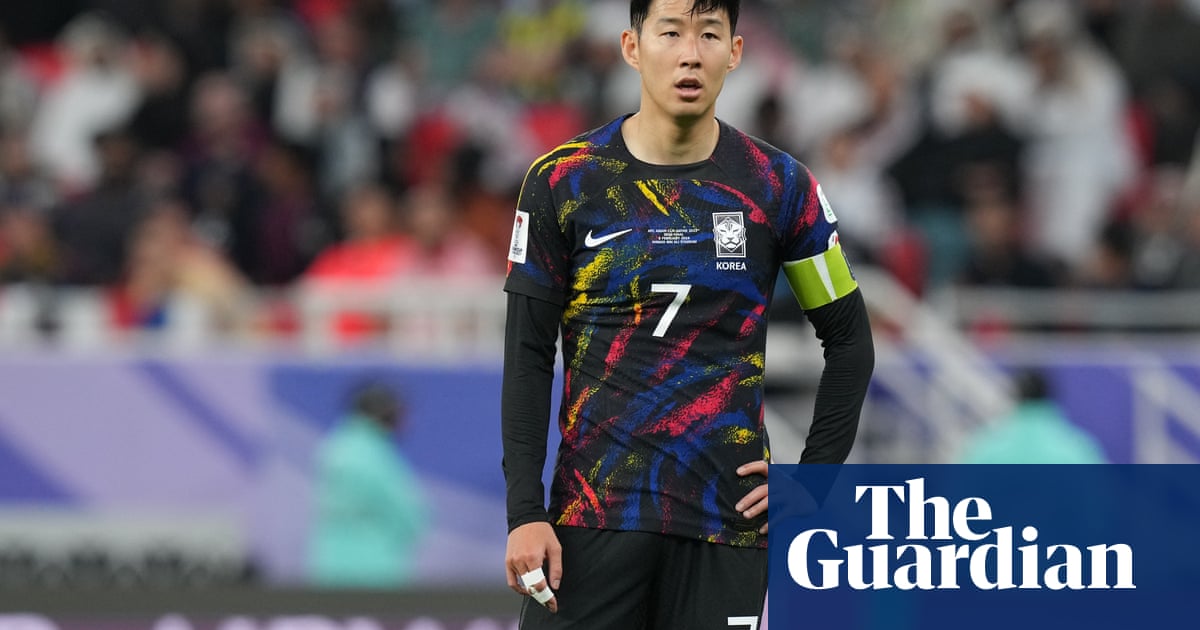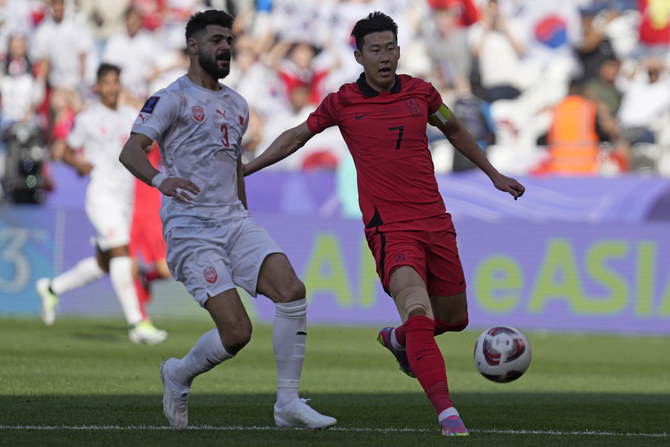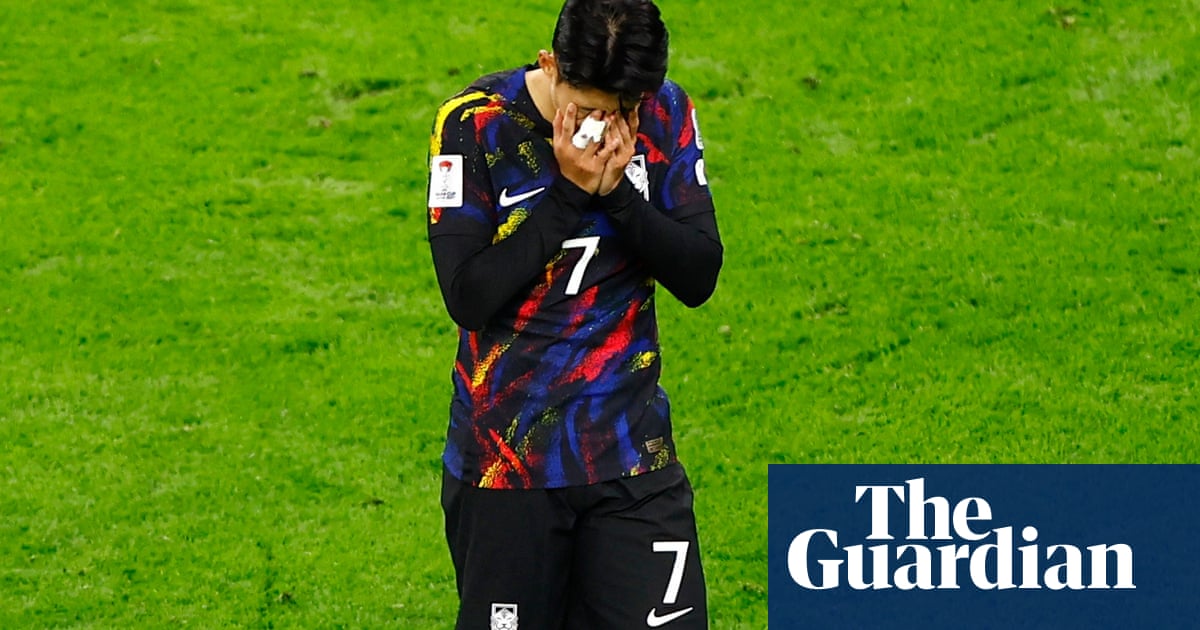
Son Heung-min will live the dream on Saturday night when he features for Tottenham in the Champions League final against Liverpool in Madrid. But the South Korea forward can still remember when he dreamed it.
For millions of Son’s fellow countrymen and women, it has become a ritual – rise early, no matter how early, and watch the biggest game in world club football on TV. Son did it many times during his youth and one final, in particular, has stood the test of time.
When Son saw one of his heroes, Park Ji-sung, become the first Asian player to appear in the showpiece fixture – for Manchester United against Barcelona in 2009 – it served to quicken his pulse and harden his motivation. United would lose 2-0.
“It was so big in South Korea because Park was the first Asian to play,” Son says. “I watched it as a football fan and, of course, you are dreaming about good things. I am always dreaming about good things like winning something or being the best player.
“All players dream of this but the Champions League is not giving every player the opportunity to play in the final. We’re in it, this is a fact, and now I’m just looking forward to it. We don’t want to have too much pressure. We want to enjoy this very important game.”
Park had reached the final with United in 2008, having played the 90 minutes in both legs of the quarter-final against Roma and the semi-final against Barcelona. But Sir Alex Ferguson would drop him from his matchday squad for the final against Chelsea, which United won after a penalty shootout. Imagine how that went down with the early risers in South Korea. Ferguson said in 2017 that he regretted the decision “to this day”.
Son was just shy of his 17th birthday when Park was selected to face Barcelona in 2009 and he had returned to South Korea after his first season as a trainee at Hamburg. He would see Park start a second Champions League final for United in 2011, also against Barcelona, which finished in a 3-1 defeat. But Son has now morphed into the focus of his nation’s attention – and that of football fans across Asia – and it is plain he does not wear the responsibility lightly. The final against Liverpool will kick off at 4am Korean time.
“It’s a late kick-off in South Korea or rather an early time in the morning so I’m really grateful for every single bit of support and every single message I receive,” Son says. “It’s not that easy [to get up]. I did it a few times when I was a child. You go to sleep early and you wake up at four o’clock or whatever. Some people have to go to work. So I’m really grateful to the people who get up. I respect them. That’s why I always give 100%.”
Son is asked whether he is an ambassador for his country. “Yes, of course,” he replies. “I have to be. The time difference is big and people still watch the games. I have to pay back. I take a lot of responsibility. This is what I am enjoying.”
Son’s admiration for Park knows no bounds. There is a seemingly never-ending debate in South Korea as to which player is the better; the more iconic. In terms of trophies, there can be only one winner. Park’s haul includes two league titles with PSV Eindhoven and four with United. He has a Champions League medal from 2008 and another from the Club World Cup that year, when he started in United’s defeat of Liga de Quito. Son, who is 26, has won nothing in senior football but he takes something else from Park’s career.
“I respect the Asian players who started playing in Europe because they opened the door and gave us the opportunity to play here,” Son says. “This was what I wanted to do – to play in Europe – and now I want to give a good image of South Korean players and open the door even wider than it was a few years ago. This is my target. I try to be like Park because he did an unbelievable job for us and for our country.”
Son’s connection to the fans in South Korea is different from that which Park enjoyed. Many consider Son to be like a member of their family – possibly because of his kindness and honesty with his emotions – and, having followed his story from the Hamburg days, they feel that his triumphs are somehow their triumphs, too.
One of them came at the start of this season, when Son – as an overage wildcard player – helped the South Korea Under-23s to gold at the Asian Games, which also served to gain him exemption from his country’s mandatory 21-month military service.
It was easy to feel that Son’s push for the pardon was more important than that for victory itself, which reflects the affection with which he is held in South Korea and, certainly, there was far greater interest in the tournament than would normally be expected. When Son and his teammates beat Japan in the final after extra time in Indonesia, it was late in Korea but everybody, seemingly, was awake. It was said that the cheers could be heard from house to house.
Son’s career has generally been blighted by heartbreak on the international stage. He was a part of the South Korea team that lost on penalties to Japan in the 2011 Asian Cup semi-final and then, four years later, to Australia after extra time in the final, and he was distraught after his country’s World Cup group stage eliminations in 2014 and 2018. The footage of him sobbing uncontrollably in the dressing room in Russia last summer went viral.
“When you lose a big game, it’s so painful but I’m not a guy who thinks of negative thoughts,” Son says. “It’s very important that we keep our minds positive, our energy positive and then bring it to this final against Liverpool.”
Son has lived a remorselessly demanding year, beginning with the World Cup and taking in the high of the Asian Games and the low of the shock Asian Cup quarter-final exit to Qatar in January. There has also been the small matter of 47 appearances across four competitions for Spurs. But has he ever had a better year? Son has scored 20 times at club level and has been named as Tottenham’s player of the season. He intends to enjoy one last hurrah. The Guardian Sport












